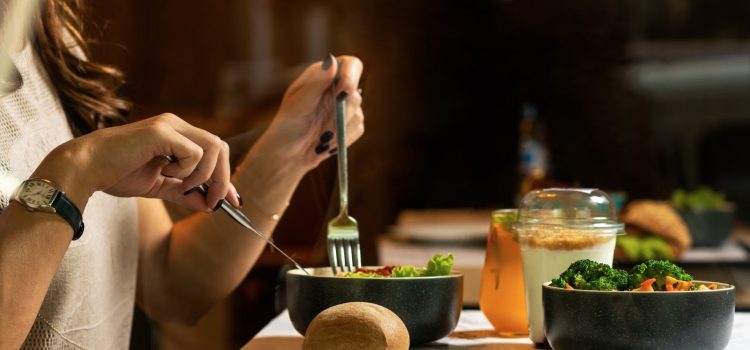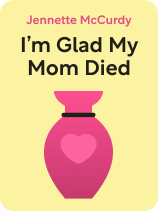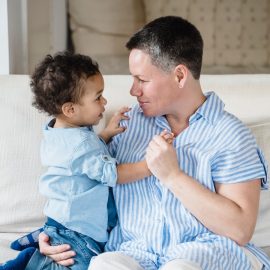

This article is an excerpt from the Shortform book guide to "I'm Glad My Mom Died" by Jennette McCurdy. Shortform has the world's best summaries and analyses of books you should be reading.
Like this article? Sign up for a free trial here.
How did Jennette McCurdy recover from bulimia? What led her to bulimia in the first place?
Like child star Jennette McCurdy, many people around the world suffer from bulimia. For McCurdy, hers began as a result of her mother restricting her calories when she was a child, but McCurdy had a hard time believing her mother was harming her.
Discover the tremendous story of Jennette McCurdy’s bulimia recovery, as described in her memoir I’m Glad My Mom Died.
Jennette McCurdy’s Therapy and Treatment for Eating Disorders
Jennette McCurdy’s bulimia recovery begins by going to a therapist and life coach, Laura. They start by taking stock of McCurdy’s life, determining that she’s binging and purging 5-10 times a day and drinking 8-9 shots of hard alcohol a night. Laura helps McCurdy understand that she’s binging and purging as a way to relieve anxiety caused by pent-up emotions. McCurdy is so spent and exhausted after she purges that she has no energy left for anxiety. In this way, the act serves as self-medication. She learns that one method of addressing her bulimia is by journaling constantly to get her feelings on paper so they aren’t unconsciously propelling her actions.
In response to Laura’s questions, McCurdy reveals that her mom showed her how to restrict calories when she was 11. Laura says that McCurdy’s mom taught her how to be anorexic and encouraged her anorexia; she says this was abuse. McCurdy has always told herself that her mom wanted what was best for her, and she can’t stomach hearing her mom be called abusive. She quits therapy and returns to her disordered eating with a vengeance.
(Shortform note: Like McCurdy, many adult children of abusive parents have a hard time accepting that their parents were abusive. Some psychologists say this is due to a kind of twisted hope: Children of abusive parents have been conditioned to believe that if they just do everything the abusive parent wants and try harder to please them, eventually the parent will give them the love and support they need (and, illogically, sometimes this hope continues even after the parent’s death). It’s especially hard to recognize and come to terms with childhood abuse if it was primarily emotional—like Debra’s abuse of McCurdy—because this kind of abuse doesn’t cause obvious, physical harm. However, denial of a parent’s abuse doesn’t make the pain it caused go away. Only by facing the pain directly are children of abusive parents able to heal.)
Soon after McCurdy leaves therapy, her dad tells her that he’s not her biological father. Then, her boyfriend, who’s suddenly become religious despite previously showing no interest in religion, declares that he’s Jesus Christ reincarnated. McCurdy feels as if nothing in her life is certain or under her control. On a flight to Australia for a press junket, she binges and purges the entire time, and the last time, she loses a tooth in the process—her stomach acids had worn down the enamel. When she lands, she finds out her boyfriend is in a mental health facility and may be schizophrenic.
(Shortform note: McCurdy has said that she considers this sequence of events her “rock bottom”—a time when she didn’t believe things could get any better. The term “rock bottom” is frequently used in the recovery community to describe a crisis in a person’s life that makes them realize they don’t have any control over their addiction. Rock bottom looks different for everyone, and it isn’t necessary for people to hit rock bottom before they can begin their addiction recovery. However, for some people, like McCurdy, it’s what sets them on the path to recovery.)
Things have gotten so bad that she decides to see an eating disorder specialist, Jeff. He starts by having her eliminate any “dieting” behavior: She must get rid of all diet foods in her house and stop exercising, except for walking and stretching. Then she needs to track her eating and purging. Next, he has her attempt to eat three meals a day, with snacks in between. She starts making gradual progress.
One lesson she learns that hits home for her is the difference between a “slip” and a “slide.” A slip is when you slip up on your road to recovery and return to the behavior you’re trying to quit. You may feel guilt or frustration, which is normal and can even motivate you to change. A slide is when you add shame to those feelings of guilt and frustration, beating yourself up or telling yourself you’re a terrible person because you made a mistake. The problem with shame is it tends to spiral, often leading you to slip up more and more. Accepting that you’ll make mistakes on the road to recovery, without going into a “shame spiral” every time you do, can in fact make recovery more likely.
McCurdy struggles for years to recover from her eating disorder and has frequent relapses. However, using the techniques she’s learned, McCurdy eventually reaches a point where she’s able to go a year without purging, and she begins to enjoy eating.
| Guilt, Shame, and Vulnerability Recovery experts, psychologists, and even some religions have long emphasized the importance of knowing the difference between guilt and shame, or what McCurdy describes as the difference between a “slip” and a “slide.” In The Power of Vulnerability, researcher Brené Brown explains that guilt is about actions, while shame is about identity. Guilt makes you say, “I did a bad thing,” while shame makes you say, “I’m a bad person.” Shame can cause you to feel unworthy and unlovable, as well as to believe that you’re all alone with your problems, which can in turn lead you to engage in more unhealthy behavior. Brown notes that shame is highly correlated with addiction, eating disorders, depression, and violence. It’s often caused by negative interactions with authority figures in childhood. The antidotes to shame, says Brown, are vulnerability, empathy, and self-compassion. Talking about your shame with a trusted confidant helps you understand that you’re not alone, and learning to understand other people’s feelings helps them dispel their own shame. Self-compassion—being kind to yourself when you make a mistake—helps you learn from your mistakes without connecting them to your self-worth. A lesson on the toxic effects of shame is also present in the Buddhist metaphor of the “two arrows.” The first arrow is the emotional or physical pain you experience when you make a mistake or something bad happens to you. The second arrow is the additional mental suffering your thoughts create, which can lead you to shame yourself, blame others, and engage in unhealthy behaviors to distract yourself from the pain. The solution, according to Buddhism, is to sit with the uncomfortable feelings caused by the first arrow, rather than immediately shooting yourself with the second arrow of your thoughts. A more colloquial description of this process sometimes used in the recovery community is “The only way out is through.” The Buddhist approach also emphasizes self-compassion, encouraging you not to beat yourself up when you make a mistake. |

———End of Preview———
Like what you just read? Read the rest of the world's best book summary and analysis of Jennette McCurdy's "I'm Glad My Mom Died" at Shortform.
Here's what you'll find in our full I'm Glad My Mom Died summary:
- Former child star Jennette McCurdy's autobiography
- McCurdy's difficult, often traumatic, relationship with her controlling mother
- What it's like to grow up as a child in the spotlight






